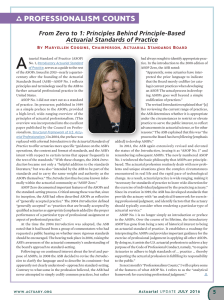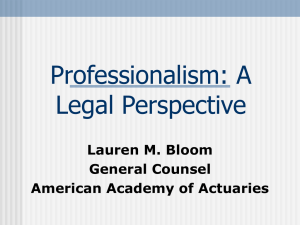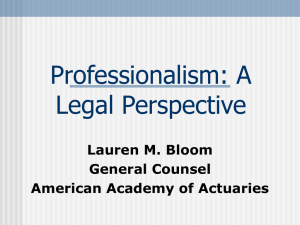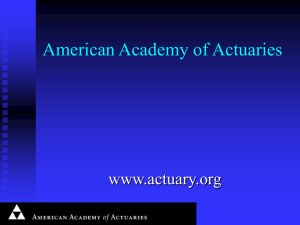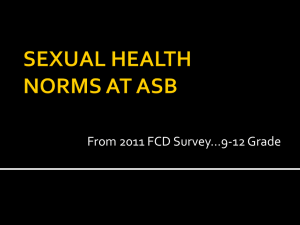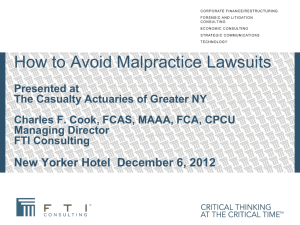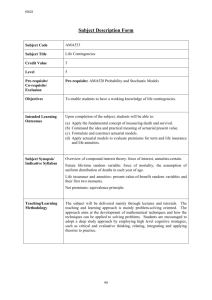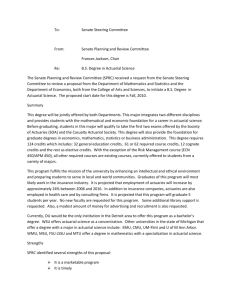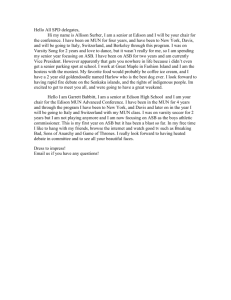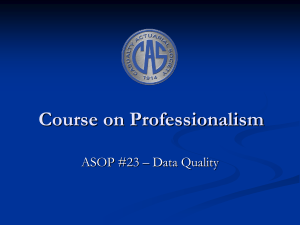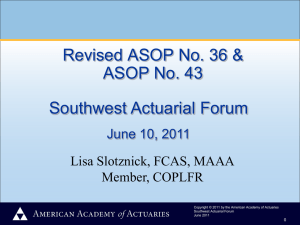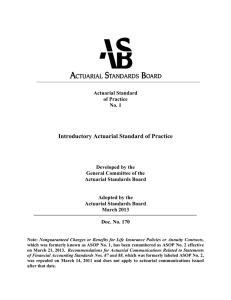Course on Professionalism - Casualty Actuarial Society
advertisement
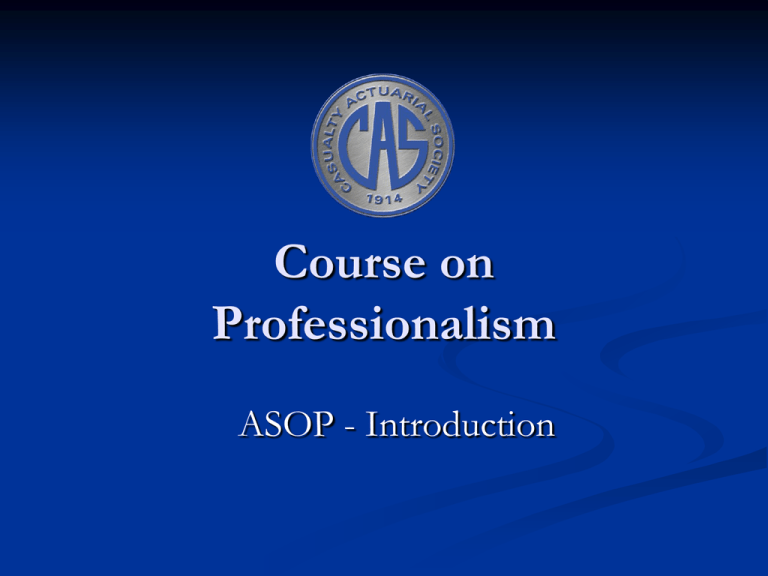
Course on Professionalism ASOP - Introduction Outline Perspectives on Professions History of Standards Standards of Practice 2 Perspectives on Professions Essential Characteristic of a Profession Expertise in area where professional services are performed Requirements Setting selective standards for admission Training for the attainment of professional competence An organization to test such competence Standards of conduct and practice 3 Why Professions Exist One person can’t know everything Need to spend years acquiring expertise in a given field Society must rely on professionals Since only experts in field understand the profession, professions must self-regulate Need to establish standards of practice and conduct in order to ensure that work products produced by different professionals are of a similarly high quality 4 History of Standards 1954: SOA update of Guides to Professional Conduct (covered only general principles & precepts) 1956: Conference of Actuaries in Public Practice: Code of Professional Conduct 5 History of Standards 1965: AAA formed; issued its own “Code”: Professional Duty Member’s responsibility to his/her principal Relationship with principal Impartiality & independence Advertising, publicity, & relations with other members Remuneration Use of titles Little direction in “standards of practice” 6 History of Standards 1970’s: “Standards” start to be developed in response to guides/laws issued by AICPA, NAIC, Federal Government, et al. Late 70’s: Emergence of the “Valuation Actuary” 1985: Interim Actuarial Standards Board (IASB) formed 1988: ASB formed; given sole discretion to promulgate actuarial standards of practice Charge: develop, promulgate standards; continually review them for update needs 7 Standards of Practice Standards of professional performance and behavior Developed to meet the expectations of users of the professional services Provide guidance for: Dealing with commonly encountered problems Handling new problems & non-routine situations Ensure the high quality of professional services 8 Role of ASB Actuarial Standards Board (ASB) responsible for promulgating ASOPs ASB has exclusive authority to determine ASOP needs and content All actuaries required to observe ASOPs 9 Purpose of ASOPs Provide actuaries with framework for performing actuarial assignments ASOPs are principles-based – do not dictate every step of a project ASOPs do not mandate a single approach, but rather provide guidance Emphasize process over outcome – actuaries can reasonably disagree 10 Practice Areas Five “Areas of Practice” within ASB, each with its own operating sub-committee, charged with developing & reviewing appropriate ASOP’s: Casualty Health Life Pension General 11 Format of Standards Preamble Purpose, scope, effective date of Standard Definitions of special terms Background & historical issues Review of current & alternate practices Analysis of Issues & Recommended Practices Communications & Disclosures 12 Question #1 Which entity has discretion to promulgate actuarial standards of practice? A. CAS B. ASB C. AAA D. ABCD Answer #1 The correct answer is B: CONGRATULATIONS You have successfully completed this session on the Introduction to the ASOPs
